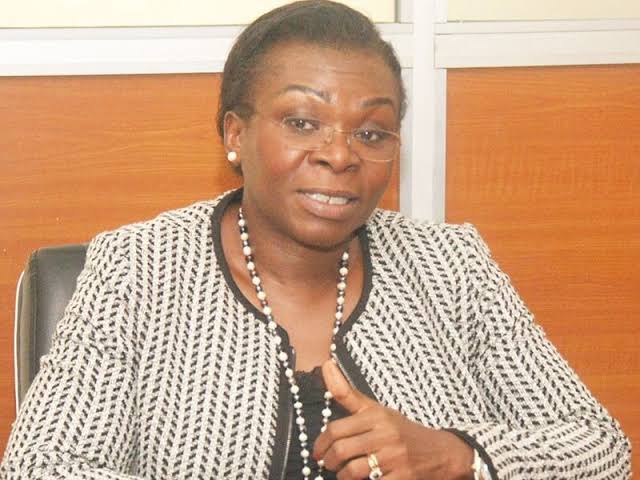
The Shipping Lines Association of Nigeria, (SAN) says the moribund Shipping Lines Operators and Freight Forwarders Employers Association (SLOFFEA), will be resuscitated.
It says the association will be resuscitated to handle the setting of minimum standard for payment in the maritime industry.
The Chairman of SAN, Mrs Boma Alabi (SAN), told the News Agency of Nigeria (NAN) in Lagos on Friday that SLOFFEA was the appropriate body empowered by law to look into setting of standard for payment in the maritime industry.
She said that the body, which had been moribund since 10 years ago, would be resuscitated with the help of the Nigerian Shippers’ Council (NSC).
Alabi noted that the call to resuscitate the association was important, to address the issue of minimum standard and conditions of service being pushed to SAN by the Maritime Workers Union of Nigeria (MWUN).
The SAN chairman said that SLOFFEA was recognised by the Ministry of Labour as the umbrella body for the industry, noting that it was quoted in the ministry’s Act.
She said that to that extent, it was a body recognised by the government to represent the association.
Alabi said it was not funded by government, but industry people made up of freight forwarders, shipping lines and others.
According to her, resuscitating it will ensure that whatever is arrived at in the course of negotiation, the body will be the one to sign on behalf of all employers with the maritime workers union.
She said that an interim committee for SLOFFEA had been set up, chaired by her.
On the strike called by the workers union scheduled to begin on June 5, Alabi said that they had always been negotiating with the union, but unfortunately, nothing fruitful had come out of it.
“We went negotiating with the workers union and during the period of negotiation, they had written to Federal Ministry of Labour complaining that they were not in talks, and the ministry mandated the shippers council to call all parties together.
“The council now took the role of a mediator on the basis of that mandate.
“In the meeting, we made it clear to them that SAN is a voluntary organisation with no authority to bind its members and members are not made up of the entire industry.
“We said that talking to SAN alone would not achieve their objectives of setting industry standard. We are about 13/14 members in SAN while there are over a hundred players in the industry,” she said.
She said that the workers union opined that they had majority working for them, up to 80 per cent.
“We asked, what of the other 20 per cent? Don’t they deserve a minimum standard? They do, so they should bring all of them into the conversation.
“We are not shying away from the conversation and we want it done across board, so that we truly set a minimum standard in the industry.
“SAN that they are talking to are about the elite in the industry, the minimum standard that they are even setting, we have even exceeded it in what we are paying and they know that,” she said.
Alabi said that this pushed towards resuscitating SLOFFEA, adding that despite the call to resuscitate it, they did not hamper negotiation with the union, which was still on until May 31 when the union walked out on the meeting.
“The argument was for eight hours plus one hour lunch break. They said that the eight hours plus one hour lunch break means seven hours.
“We presented the position of Nigeria Employers’ Consultative Association (NECA) on this and they said NECA was representing employers. so they don’t expect NECA to say anything against the employers.
`The next thing was the union calling for strike from June 5. It is unfortunate we are going to go down that way. But we can’t predict what the workers will do, we are still reaching out to them.
“Our workers’ interest is always our priority because it’s not in anybody’s interest to shutdown the port. Nigerians are already suffering enough and adding this to the chaos being faced. The day is not over yet,” she said.
She pointed out that its members average salary per worker was N500,000, adding that they pay higher than the oil sector the union was comparing them with .
“Negotiation is about give and take, everytime you don’t get what you want, you walk out. Sit at the table and we will reason with each other.
“NECA has said eight working hours plus one hour lunch, so full days is nine hours, but they are arguing that the eight hours is inclusive of lunch which means they are working seven hours.
“They should also look at the labour Act. And walking out is not helping us, that is why we come back and forth as if we are not moving forward,” she said.
The maritime workers union on June 1, announced plans to shut down port operations starting from June 5.
The President-General of the union, Adewale Adeyanju, cited unwillingness of the management of shipping companies to discuss the welfare and working conditions of their employees as reason for the strike call.
He said series of interventions and discussions had been explored but the management of shipping companies did not come up with a long-term solution to resolve welfare issues.















